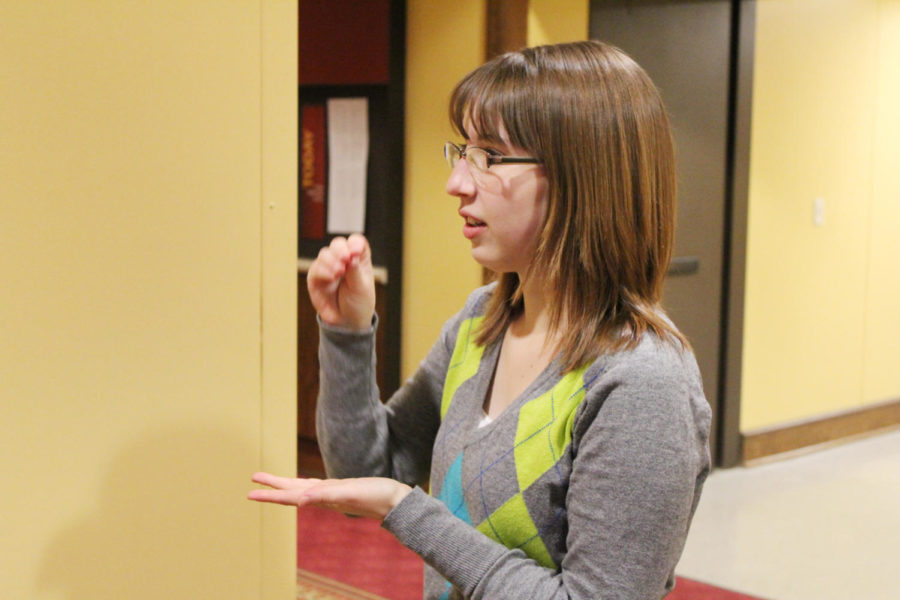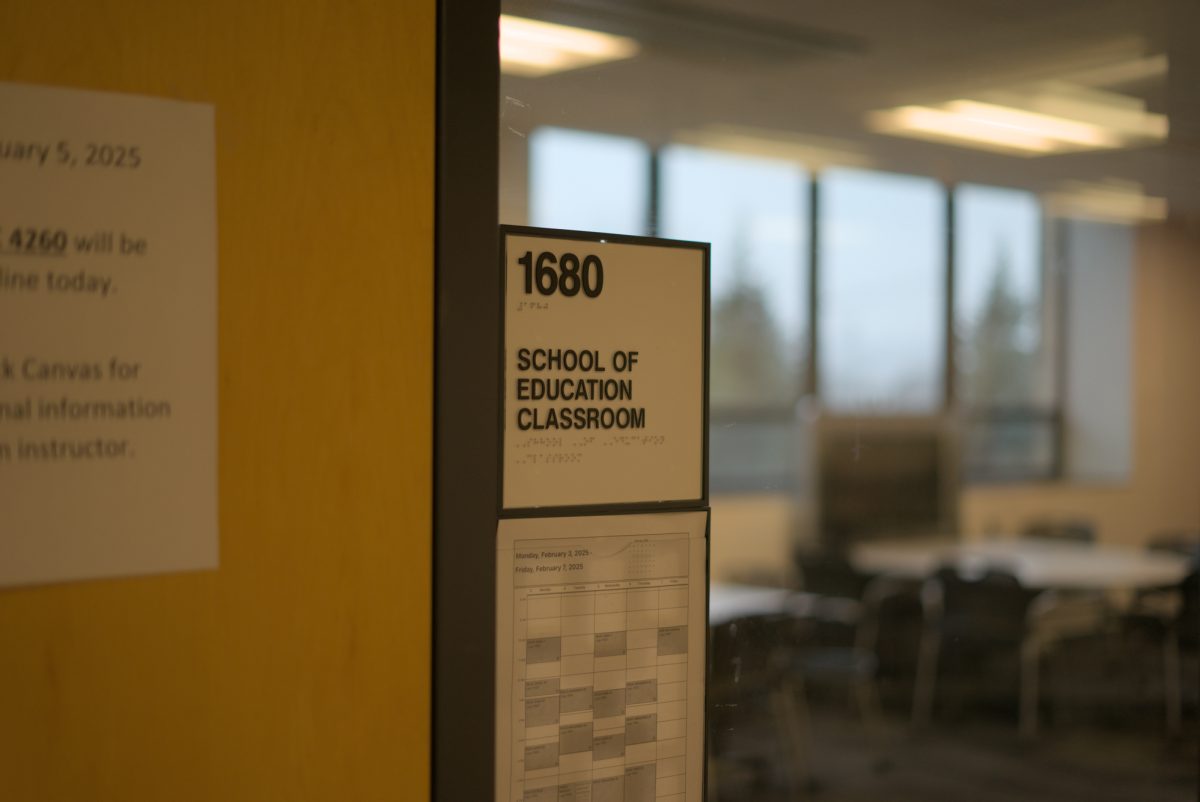American Sign Language Club evaluated to become university-recognized student club
January 24, 2013
On Wednesday, Jan. 23, in Pearson Hall, one ISU club will meet very quietly. In fact, no one will speak at all. The club is the American Sign Language Club.
“Through our club, we are trying to expose people to American Sign Language through real-life experiences,” said Olivia Weber, junior in interdisciplinary studies and president of the club.
The American Sign Language Club is currently being evaluated by the Student Organization Recognition Board to become an official university-recognized student club.
Jonathan Webb, lecturer of American Sign Language and adviser for the club, said there are only about half a dozen deaf students on campus.
“Being a hard-of-hearing individual in a college setting is a unique experience for me and for those with whom I interact,” Weber said. “Under the best circumstances, HOH [hard-of-hearing] people need to concentrate harder to hear what is being said.”
Weber said in a classroom atmosphere it becomes more difficult, at times impossible, to understand what is happening.
“Lip reading comes in handy, but again, the speaker must face me at all times,” Weber said. “It took several weeks and a lot of trial and error before we found the accommodations that worked for my hearing loss.”
American Sign Language courses have only recently become available at Iowa State, though so far there is no major program, or even the option of a minor in the language that is so important to Deaf culture.
“This process has actually been talked about for a couple of years,” Webb said. “There was a need for an ASL club, but they didn’t necessarily have a way to make that happen.”
At this point, the club has around 20 potential members, most of whom are neither deaf nor hard-of-hearing.
“Hearing club members will find it enormously helpful to sign to someone who is HOH or deaf. It’s different than signing to someone who can hear, because we can offer another perspective,” Weber said. “If you’re a Spanish major, you go to a Spanish-speaking country to perfect your Spanish abilities. In the same way, practicing ASL with others who have experience signing helps perfect your signing.”
As well as aiming to give hearing individuals a chance to develop their signing, the club is also an outlet for Deaf culture — a chance for people who were raised in a hearing society to learn about and better understand Deaf culture.
“When most people think of a deaf person, they usually think about being audiologically deaf,” Weber said. “Many people don’t realize that there is a Deaf culture, but being deaf doesn’t make you Deaf.”
Weber was not raised in a Deaf culture and enjoys being involved in the unique community the club offers.
“I wish I’d been exposed to signing sooner, because it introduced me to a community that understood the same challenges. It was empowering,” Weber said. “I was really excited to learn that Dr. Webb … was interested in forming an ASL club.”
The Student Organization Recognition Board met last week to discuss the inception of the club as an official university organization. This is the last step in the process and the club is eagerly awaiting word of the decision.







